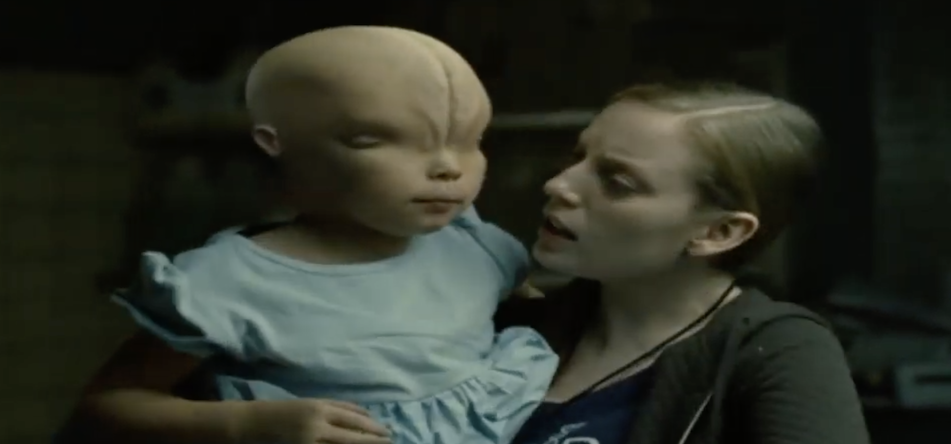Have you ever rewatched a film you haven’t seen in a long time, only to find you have a very different opinion of it the second time around? I certainly have, and I almost always come away feeling disappointed with both the film and my younger self.
Vincenzo Natali’s Splice, on the contrary, is a film I hadn’t seen since it first came out in 2009, but I remember being discernibly disappointed. My expectations were therefore quite low upon revisiting Splice, placing perhaps too much faith in my opinions of old. To my surprise, however, this time around I found it to be a much deeper and profound experience that is richer than your run of the mill horror film, though it’s not without caveats that may leave many horror fans wanting.
Splice’s story features many hallmarks of science fiction horror, wherein Clive (Adrian Brody) and Elsa (Sarah Polley), a couple who also happen to be biochemists at the forefront of their field in gene splicing, attempt to merge human DNA with those of animals after hitting a roadblock in their research from the company who funds them. The experiment goes predictably awry, as the two produce a creature they later name Dren (Delphine Chanéac), who is neither human nor animal, but something new entirely.
With a basic premise whose cinematic roots can be traced as far back as 1931’s Frankenstein (or even earlier again if you look at German cinema), Splice had its work cut out for it from the get-go if it was to distinguish itself from the crowded field of the genre.
Natali certainly makes such an attempt, co-writing a film that places great emphasis on its thought-provoking, subtextually rich themes, all of which is complemented by some very deliberate directorial decisions. In fact, it was this crucial marriage of writing and direction that I missed 10 years ago when I watched it last, which explains my newfound appreciation for the film.
It isn’t just the themes at hand that makes Splice absorbing, but the ways in which the often-questionable actions of Clive and Elsa are shaped around them. Both characters feel wholly individual, thanks to the performances of Brody and Polley and Natali’s framing of the characters. Elsa is clearly the more dominant figure in the relationship, who uses her subtle dominance over the more complacent, but no less brilliant, Clive to go further and further into their twisted experiment.
The interplay between the two as things progressively get out of hand is one of the film’s strongest elements, as Natali cleverly allows it to not only further his themes but to also express their personalities in a palpable manner. As such, it is continuously engaging to see Clive be the voice of reason despite reluctantly partaking in the care and analysis of Dren, while Elsa makes increasingly questionable decisions that mirror her own relationship with her mother, lying to Clive and perhaps herself in the process. Ultimately, they are both very flawed characters who make grave mistakes, but in their own complex ways.
However, much like its lead characters, Splice is not without its flaws. While the film delivers on the promise of its themes and three-dimensional characterisation, it’s not always subtle (the acronym for the company Clive and work for is N.E.R.D.) and the dialogue can very occasionally veer into contrived territory. Perhaps Natali’s greatest misstep, though, is in his execution of the film’s horror elements.
Splice is one of those rare horrors that’s more concerned with the drama and less about the effectiveness of its…well, horror. Don’t get me wrong, it will almost always make for a better film when characters and themes are prioritised over scares, but that doesn’t mean Natali should skimp out on the pure horror thrills that fans no doubt crave. Even when the film does eventually decide to rack up a body count (which comes very late game), Natali’s execution of what should be the film’s most intense sequence feels like a short-lived afterthought, which is particularly odd coming from the director of Cube, a film that essentially consists of one set piece after another.
Splice is not without its well-earned moments of tension and makes for intriguing fare as a science fiction horror with a lingering sense of Cronenbergian influence, which I always appreciate. It just lacks the conviction as a horror when it matters most. Such gripes aside, Vincenzo Natali nonetheless delivers a film that is as absorbing in its character work as it is engagingly heady in its ruminations on what it means to be human.
7/10
![]()
![]()
![]()
![]()
![]()
![]()
![]()
![]()
![]()
![]()

